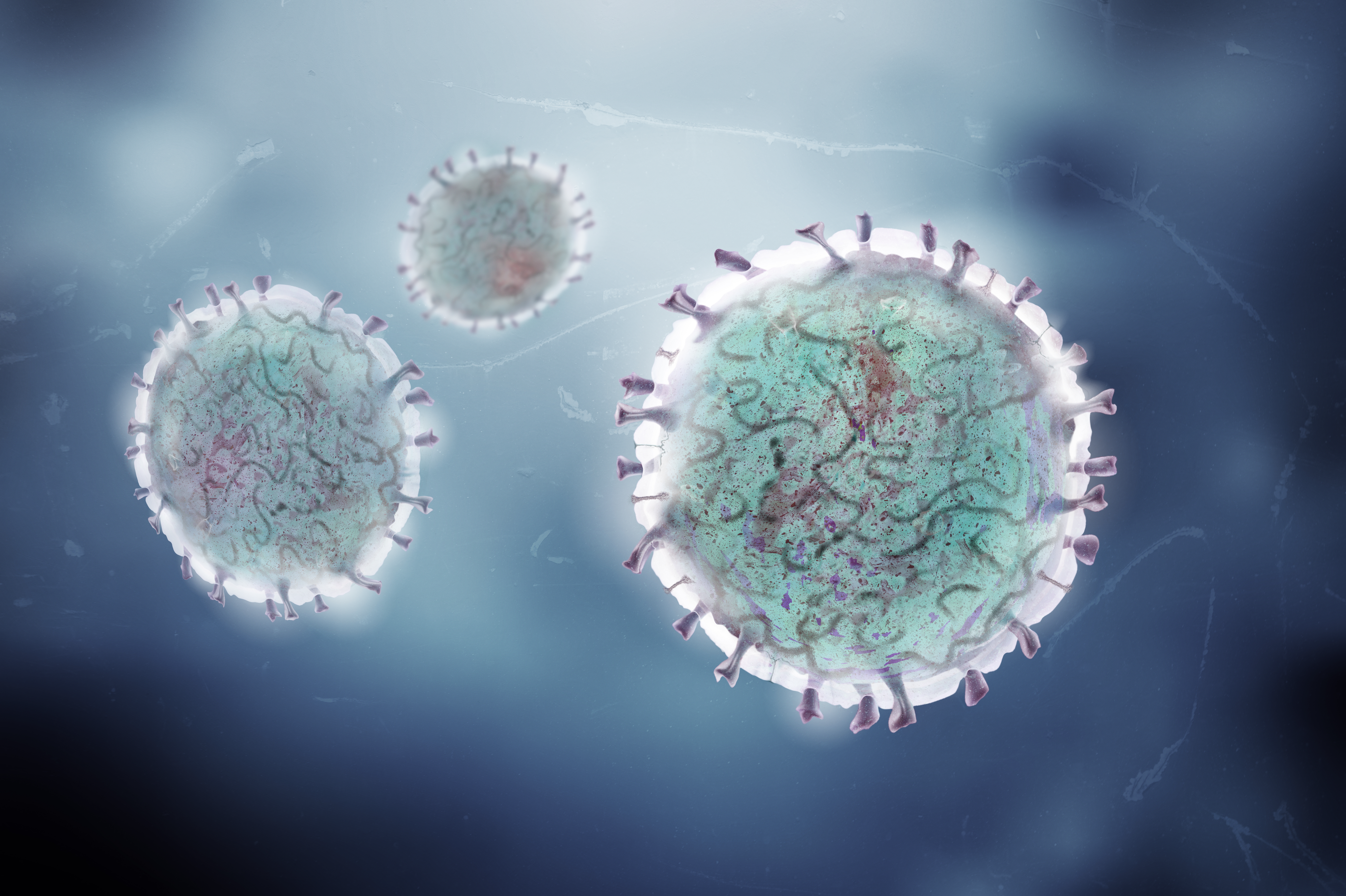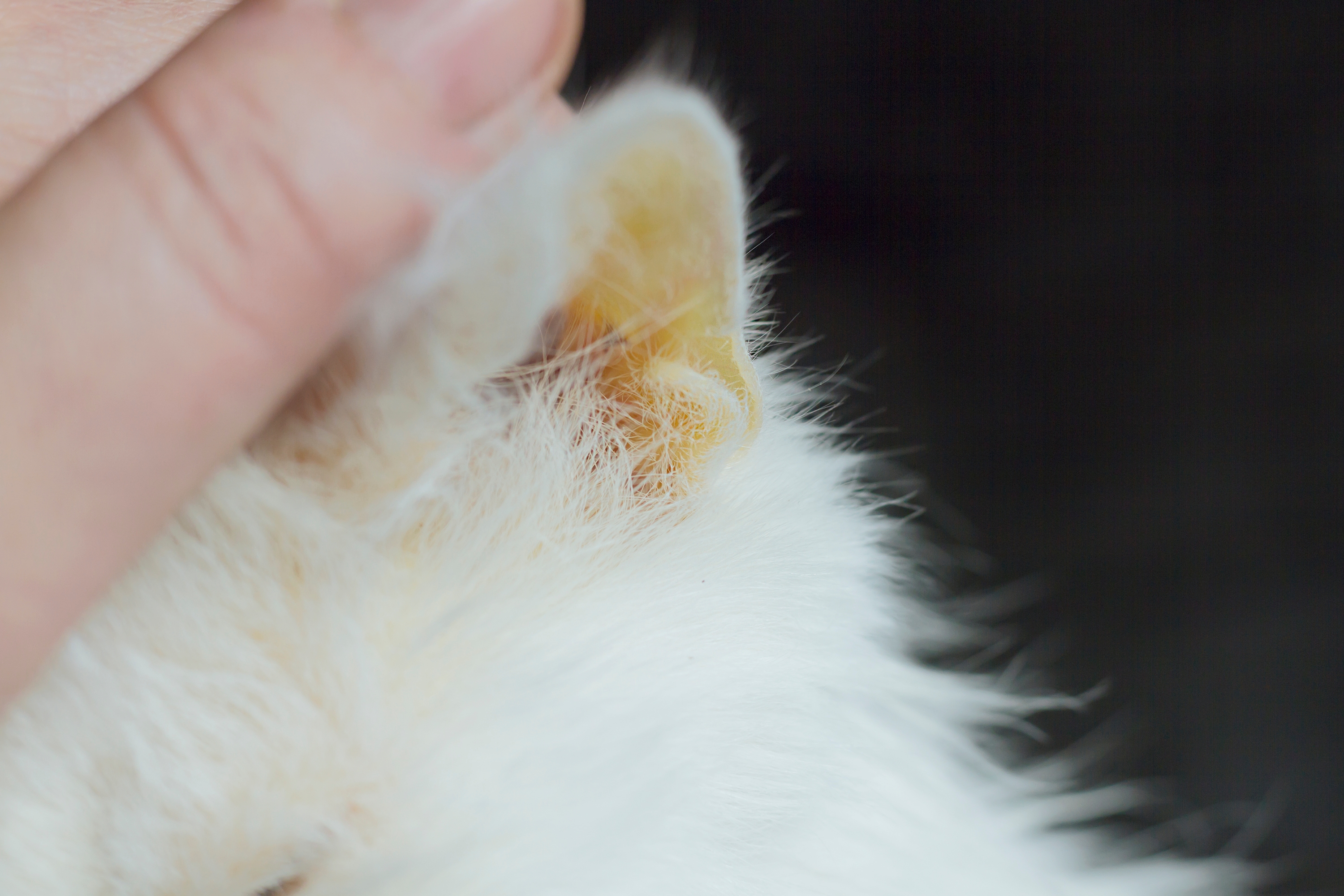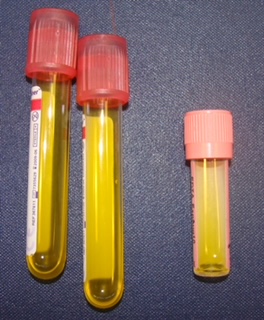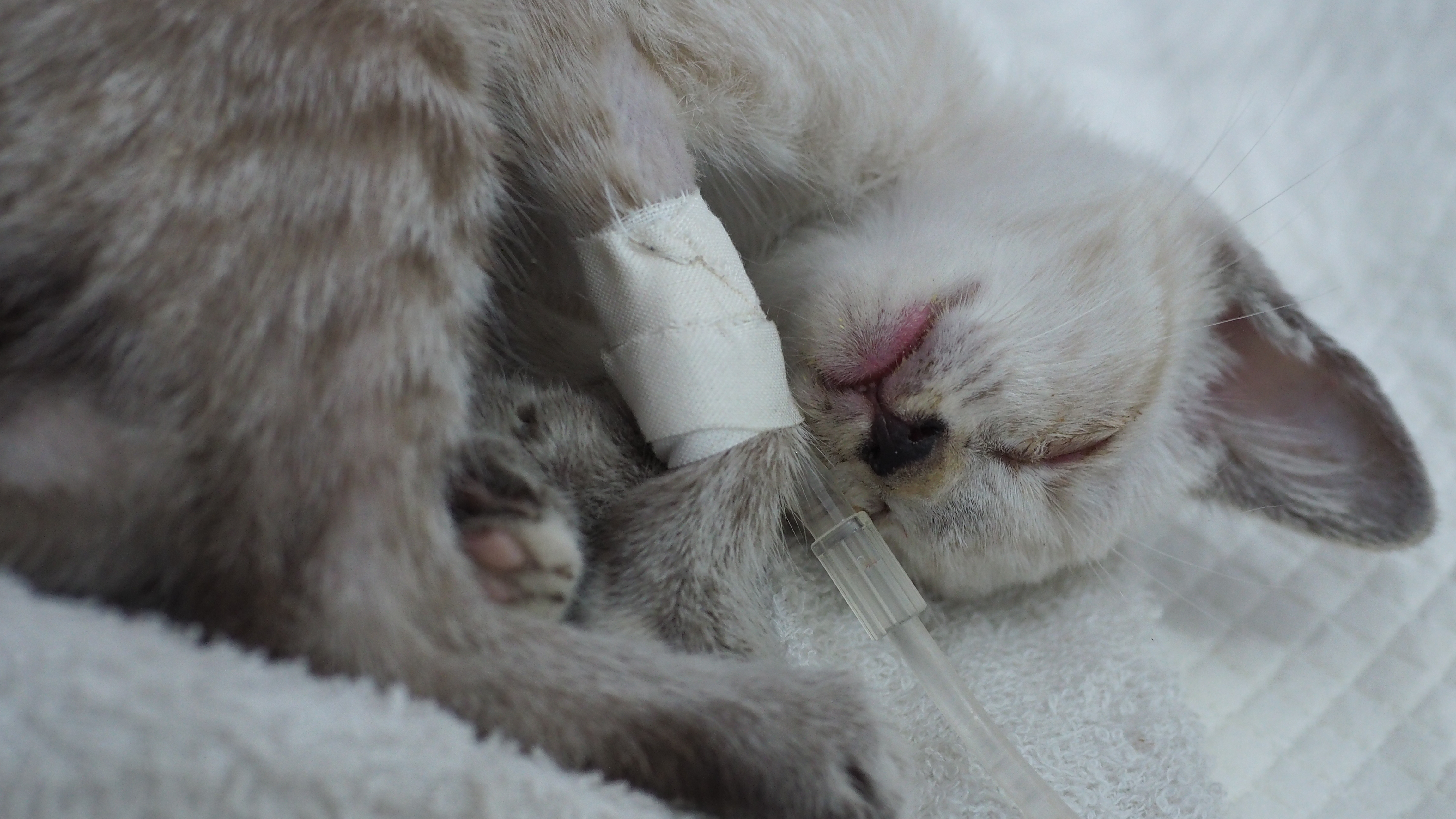
What is Feline Infectious Peritonitis (FIP)?
Feline Infectious Peritonitis (FIP) is a disease caused by infection with a mutated form of Feline Coronavirus (FCoV).
Coronaviruses are a common group of viruses that often infect the nose and throat (upper respiratory tract) or intestines (gastrointestinal tract). COVID-19 is a coronavirus but the coronavirus causing FIP is not the same and only infects cats.
The major route of transmission of FCoV is faecal-oral as it is ingested and passed in the faeces, with litter boxes representing the principal source of infection in groups of cats. Transmission can also be indirect such as contact with objects e.g. litter scoops, brushes, vacuum cleaners and even shoes.
 FCoV infection occurs worldwide and is very common with estimates of between 25-40% of household pet cats being infected. However, this rises to between 80 and 100% in multi-cat households or colonies where there is increased housing density and stress. Fortunately, FIP arises in only a small percentage (5-10%) of FCoV-infected cats.
FCoV infection occurs worldwide and is very common with estimates of between 25-40% of household pet cats being infected. However, this rises to between 80 and 100% in multi-cat households or colonies where there is increased housing density and stress. Fortunately, FIP arises in only a small percentage (5-10%) of FCoV-infected cats.
Whilst cats of any breed or age can develop FIP, it is particularly seen in pedigree cats under 2 years of age. Different pedigree breeds are predisposed to FIP in different countries, suggesting a genetic rather than inherent breed effect. Males are also very slightly more likely to develop FIP than females.
Infection with FCoV does not mean FIP will occur and in most cats’ infection results in no signs or just mild diarrhoea that resolves without treatment. Under certain circumstances which we don’t fully understand the virus changes (mutates) inside a cat, and if their immune system reacts in a certain way, they could develop FIP.
If your cat has coronavirus this does not mean they have FIP, and we currently can’t differentiate between the benign intestinal form and the FIP-producing form.
How does FCoV cause FIP?
When the virus mutates it moves from the intestines into a very important cell of the immune system called a macrophage. Macrophages freely circulate around the body which means the virus is transported in this way and if not met by an appropriate immune response, FIP will develop.
There are two main forms of the disease, known as ‘wet’ or ‘effusive’ disease, and ‘dry’ or ‘non-effusive’ disease and the type that develops depends on the type of immune response in the individual affected but often our patients can have a combination of both forms.
What are the clinical signs of FIP?
The non-specific clinical signs of FIP include tiredness, reduced or complete loss of appetite, weight loss, failure to gain weight or grow as expected, fever and jaundice. More specific clinical signs depend on what type of FIP is present and the organs that are affected.
The ‘dry’ form of the disease is thought to develop due to a partially effective immune response which limits but does not stop the virus from multiplying, this is generally enough to stop fluid accumulation however not enough to prevent disease. This form often causes the development of chronic inflammatory lesions around the blood vessels and in other organs known as pyogranulomatous inflammation. In 30% of cases this inflammation can affect the eyes or brain but can also affect he kidneys, liver, lungs and skin meaning a wide range of signs may be observed.
The ‘wet’ form of the disease is characterised by an accumulation of fluid within the abdomen and/or chest cavities caused by inflammation of the blood vessels (vasculitis) making them ‘leaky’ which can result in distension of the abdomen and development of peritonitis or breathing difficulty. In wet FIP, the fluid that accumulates typically has a very high protein content and is often a clear-yellowish colour.
How is FIP diagnosed?
FIP can be a challenging disease to diagnose and the veterinary team at The London Cat Clinic use a combination of clinical examination, blood and urinalysis, abdominal and thoracic ultrasound and fluid/tissue sampling to obtain a body of evidence that supports or rules out the diagnosis of FIP.
Can FIP be treated?
The great news is where FIP was previously a sadly fatal condition it can now be treated successfully in most cases with a legally available drugs called Remdesivir a nd GS-441524.
nd GS-441524.
Remdesivir is an injectable prodrug that is metabolised into GS-441524 by the body and works to prevent the viral RNA (genetic material) from being ‘proof-read’ so the virus cannot replicate. Remdesevir is available for intravenous or subcutaneous (under the skin) administration and GS-441524 is available as tablets for oral administration. A combination of the injectable and oral forms are used depending on the presenting signs and type of FIP
The London Cat Clinic has extensive experience with FIP diagnosis, treatment and monitoring. We create a bespoke treatment plan for each case which is reassessed regularly throughout the 84 days course of treatment. As more information is published, we update our treatment and monitoring protocols in line with best practice.
If you would like to refer a suspect FIP Case to The London Cat Clinic for assessment please use our referral portal here